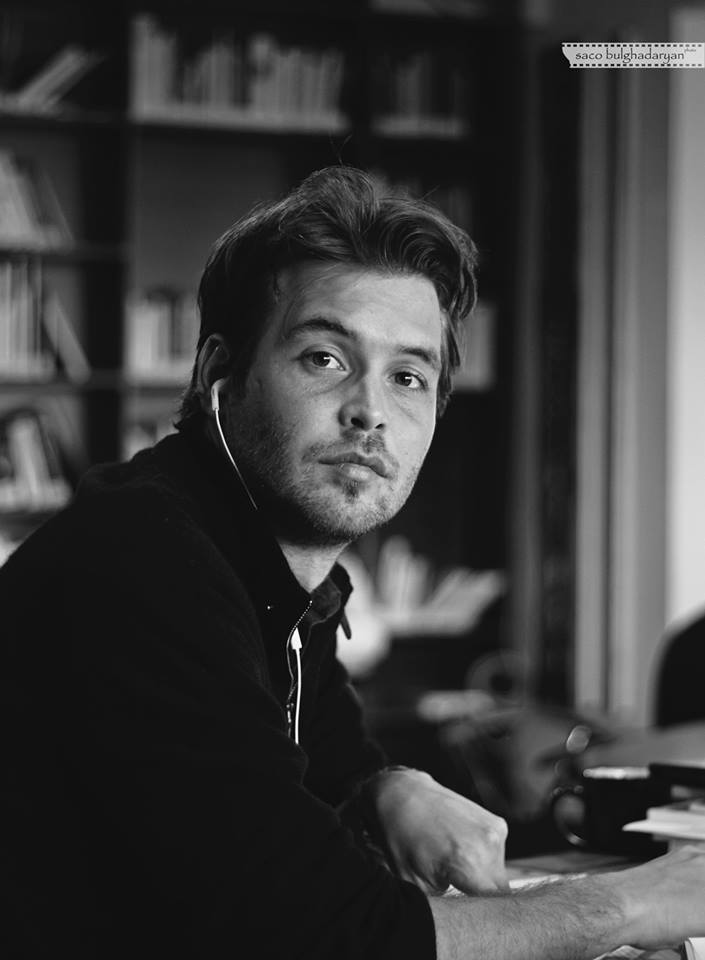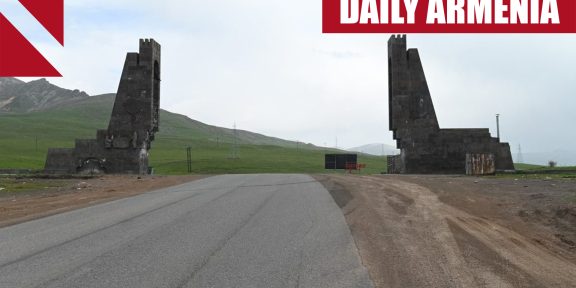 As a Frenchman watching Eurovision from Armenia, a place I am calling home for the next few months, I was surprised by the discrepancy between the message of love preached by Aram MP3, Armenia’s Eurovision contestant, in his song “You’re not alone,” and his public stance on the issue of diversity. He insisted in an interview that Conchita’s presence at Eurovision was “neither normal, nor appropriate” and hoped that “Copenhagen would enable her to decide if she is a man or a woman.”
As a Frenchman watching Eurovision from Armenia, a place I am calling home for the next few months, I was surprised by the discrepancy between the message of love preached by Aram MP3, Armenia’s Eurovision contestant, in his song “You’re not alone,” and his public stance on the issue of diversity. He insisted in an interview that Conchita’s presence at Eurovision was “neither normal, nor appropriate” and hoped that “Copenhagen would enable her to decide if she is a man or a woman.”
“Encountering a human being means being kept awake by an enigma,” said French philosopher Levinas. The mystery of Conchita, the winner of Eurovision 2014, is one that leaves you speechless and challenges the mind. Thomas “Tom” Neuwirthde, or Conchita Wurst, her stage name, became the epitome of the words she sang – climbing into the sky, against burdens and oppressions, flying and proclaiming, “You know I will rise like a phoenix.”
And the millions of Europeans who voted for her agreed. How can we remain indifferent to the piercing cry of a firebird when hate speech becomes, for a moment, silenced? After all, don’t words of rejection, which deny the humanity of others, always end up destroying the very humanity of those who utter them?
Victor Segalen, a French doctor and poet, said that we have to cultivate an “aesthetic of plurality,” of diversity, because it is through difference that life is exalted. Conchita sings, shouts and smiles tenderly at us about her identity: crossed, mixed, transformed, in perpetual motion, like the tongue of a flame in an incandescent blaze. A phoenix with wings of gold and fire, indestructible because of being complete and genuine.
Of course this is only a song, skillfully orchestrated in the context of a television program. It’s nothing terribly important. We are not talking about a historic victory for a new political order and of the triumph of social justice. But just like songs in history pushed men and women, towards the path of resistance, combat, and ardor, just as those pieces we all listen to in the dark of night soothe our pain, just as those melodies accompany our awakening in the first light of dawn, “Rise like a phoenix” bears openness, hope, and movement. Faced with inaction, choosing movement evokes the reality of our human complexity – a complexity which makes us beautiful and different, yet similar in our beauty.
Oppression, daily discrimination, often violent, pierce the flesh and leave imprints. This is what Conchita is telling us. It is from these imprints that Conchita rises and sings us her story, and through it, the story of thousands of others – the face of diversity against a sort of imposed normality. Of course, not all members of the LGBTQ community see themselves in Conchita, and some criticize her way of expression, of making a statement, with her beard, lipstick and mascara crossing the so-called masculine/feminine identity lines. “My beard is proof that you can achieve anything, no matter who you are and what your appearance,” she proclaims. Conchita does not claim to represent anyone, but only sings and through it lives her passion, because beyond her persona, Conchita is above all else one of the most beautiful voices in Austria.
Her words do not call for any form of vengeance, only recognition. “Today I want to provoke,” she said, assuming a political stance perhaps, a position of survival and of claiming her existence.
Despite Aram MP3’s words of rejection, the Armenian singer agreed to meet Conchita shortly before the Eurovision finals, even held her in his arms. Parody or real mea culpa for the cameras, it does not really matter. What should be remembered is that according to the votes of Armenians, Austria was ranked second, a sign that in face of wondrous mystery, attitudes can soften and evolve.
The point here is not to idealize someone, but to recognize her courage and humanity. In the end, Conchita’s message is not so complicated, and is probably shared by all: “This night is dedicated to everyone who believes in a future of peace and freedom.”
Last night Conchita Wurst sang, and in the beauty of her song, as the French poet Apollinaire once said “this vast land fell still.”
Guillaume Noir de Chazournes
















